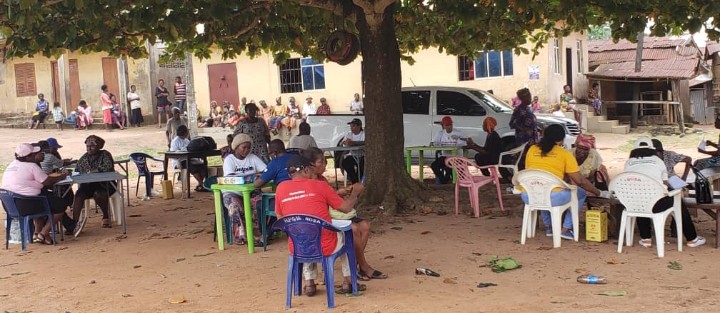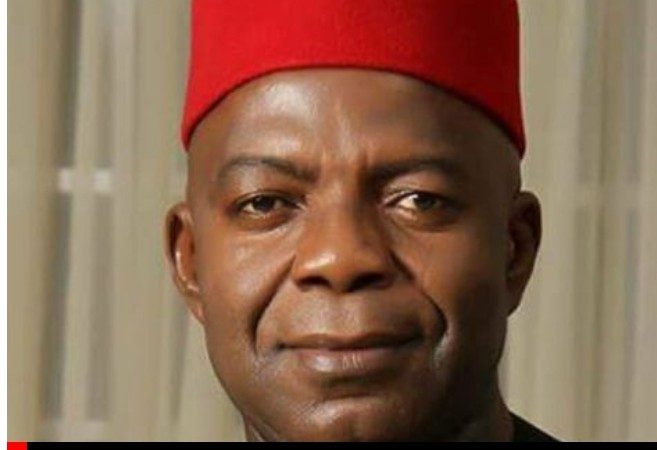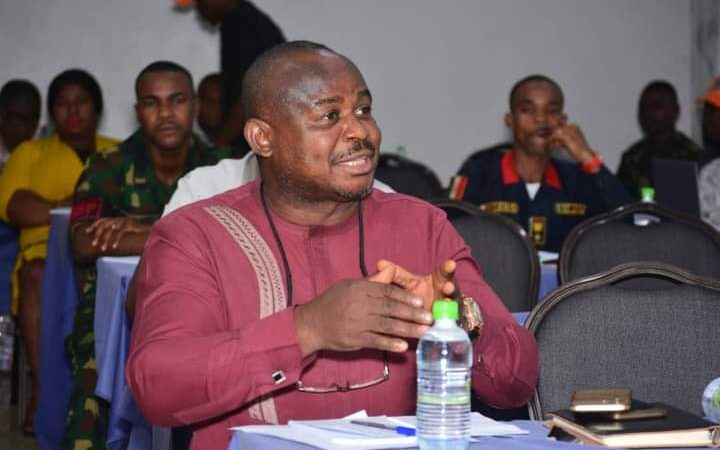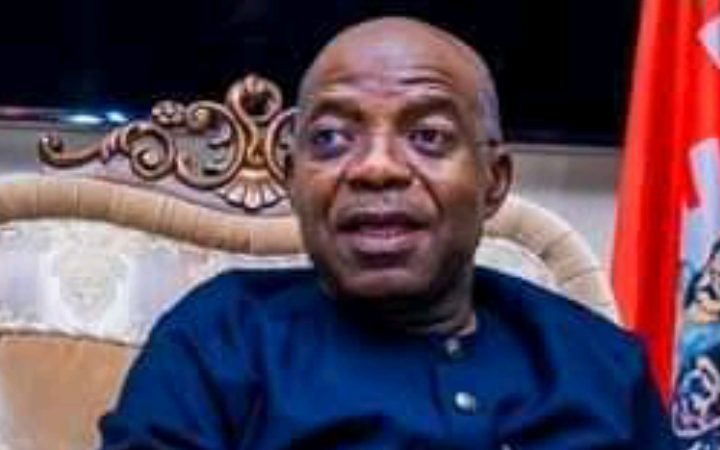By Amarachi Uzoukwu
The history of Abia State cannot be complete without the mention of those who contributed immensely in steering the ship of governance towards achieving a progressive, virile and development-oriented state as envisioned by it founding fathers.
In its 31 years of existence, Abia has been administered by five military administrators for a period of six years and four civilian governors for 22 years and one month.
The state took off virtually with no defining features and strong economic base, except for a few industries like Modern Ceramics, Golden Guinea Breweries, Ogwe Golden Chicken, International Glass Industries and Abia Palm, most of which are struggling to be heads high.
The giant stride by the state can be attributed to the cumulative efforts of past leaders of the state who, given the peculiar circumstances of their different epochs, put in their best in the governance of the state.
Kudos should go to the enterprising spirit, rugged determination, industry, sacrifice, support and co-operation of Abia citizenry that enabled previous and present administrations to make the modest achievement so far recorded in the last 31 years.
Abia State, which was created by Gen. Ibrahim Badamasi Babangida (rtd.) on Aug. 27, 1991, with Umuahia as the State capital, saw Capt. Frank Ajobena (Aug. 28, 1991 – Jan. 1992) as the pioneer Military Administrator struggling gallantly to navigate the new state through the part of stable political and economic growth and development.
On assumption of office on Aug. 28, 1991, Capt. Ajobena was faced with enormous challenges, ranging from the absence of non availability of office accommodation for returning civil servants, absence of key infrastructure like Governor’s Office, Lodge, Worker’s Secretariat, among others.
The lack of these key infrastructural facilities compelled Capt. Ajobena to convert the old Imo State Governor’s Lodge as well as the Library Ave. Primary School, which housed the office of the Secretary to the State Government, Office of the Head of Service, Governor’s Lodge to the seat of power – Government House.
He thereafter proceeded to set up the machinery for the takeoff of the new state.
Although he had a short tenure, Capt. Ajobena would always be remembered for his pioneer role in governance and building of Abia State.
Following the return of democracy in the country, with the conduct of elections by the then Military President, Gen. Babangida, who conducted governorship elections in the country, Dr Ogbonnaya Onu of the Nigerian Republican Convention (NRC), emerged the first civilian Governor of Abia State.
He built the Abia Tower of Peace, dedicated the state to God and Christened Abia, “God’s Own State”.
Onu’s adminstration was hinged on harnessing the economic and industrial potentials of the state, through the development of an industrial blueprint.
Guided by the blueprint, Onu created the Babangida Industrial Layout Phases 1&2 in Umuahia as well as the Obaku Industrial City Project in Ukwa West LGA.
As the then first civilian Governor of Abia state, Onu would ever be remembered for abolishing the state of origin policy and pioneering the appointment of non indigenes of the state into top positions of responsibility in his adminstration.
His other landmark achievements included the establishment of the following higher educational institutions, such as the Abia State Polycythemic, Aba, College of Education Technical, Arochukwu, Broadcasting Cooperation of Abia State, National Ambassador Newspaper,and attracting the Micheal Okpara Federal University of Agriculture, Umudike.
Onu achieved all these within the short period of his tenure, spanning about 20 months.
Col. Chinyere Ike Nwosu took over the mantle of leadership as the second Military Administrator of the state on Nov. 17, 1993. This followed the termination of Onu’s administration with the Late Sani Abacha’s coup that ousted Chief Ernest Shonekan’s Interim Government.
He also had a short stint from November 1993 – September 1994.
Nwosu left his footprints in the ananls of the state with his efforts to reform and strengthen the civil service system.
His pragmatic approach toward establishing a decent and orderly society and discipline in the psyche of students, teachers and civil servants alike as well as abolishing touting remains evergreen in the minds of the people, many decades after he exited.
During his tenure, Nwosu also relocated the Garki Cattle Market and abattoir from Umuahia township to Okigwe and Mgbarakuma Ubakala in Umuahia South LGA, respectively.
The bold initiative, which elicited widespread commendations, helped to put an end to the indiscriminate grazing of cows in the capital city. It also helped to rid the city of filth that defaced the entire landscape.
Another essential gain from Nwosu’s policy was the decongestion of Umuahia and its environs, in addition to the visible improvement in the aesthetics of the capital city.
Following Ike Nwosu’s redeployment to Oyo State in September 1994, Navy Capt. Temi Ejoor (Sept. 14, 1994 – Aug. 22, 1996), took over the reigns of power.
He was later succeeded by Col. Moses Fasanya (Aug. 22, 1996 – Aug. 1998).
Both Capt. Ejoor and Col. Fasanya made their own significant contributions toward the development of the state within the limits of their tenure and vision.
Although not much was said to have been achieved during the period they held sway, analysts are of the opinion that the military regime generally had virtually nothing tangible on ground in terms of infrastructure and socio-economic development to justify its reign in the state.
As the fifth and last Military Administrator of the state, Col. Anthony Obi (Aug. 1998 – May 29,1999) was essentially remarkable for its role in the successful transition programme of Gen. Abdulsalam Abubakar and eventual handover of power to the democratically elected Governor, Dr Orji Uzor Kalu (May 29, 1999 – May 29, 2007).
With his assumption of office on May 29, 1999, Kalu, popularly known as OUK, became the second democratically elected governor of the state, after Dr Ogbonnaya Onu.
OUK made some landmark achievements and left his footprints on the sands of time, especially in the areas of physical infrastructure, human capital development and sports, among others.
Some of his signature projects include the Abia State University Teaching Hospital, Aba, Ehimiri Housing Estate, Lokpanta Cattle Market, construction of internal roads in Umuahia and Aba and other parts of the state.
He also reconstructed the Umuahia and Aba Township Stadiums to standard.
Chief Theodore Ahamefula Orji, like his immediate predecessor, was in office for two terms of eight years (May 29, 2007 – May 29, 2015)
It was during his tenure that the state made significant leap in the development trajectory of Abia State.
It was T.A Orji, popularly called Ochendo Global, that gave the state capital a facelift by transforming the town from a “rural capital” (to borrow the words of late Dim Chukwuemeka Odimegwu Ojukwu) to a befitting capital city.
It was during this administration that a modern state Secretariat was built for Abia workers, along with many other befitting edifices, including the International Conference Center, Judiciary Complex and e-Library, among others.
Most significantly, T.A Orji summoned the political will to relocate three major markets from the city centre to the outskirts of the town thereby expanding development of the capital city.
The relocation of Umuahia Main Market to the Ubani Ibeku Ultramodern Market has helped to catalyse the springing up of a satellite settlement, known as the Mike Okiro Housing Estate in the area.
The relocation of the Industrial Market to Ahiaeke Ndume and Spare Parts Market to Ohiya as well as the Modern Motor Park, cited away from the city centre, had cumulatively helped to give Umuahia the beauty of a state capital.
It was T.A Orji who commenced the construction of a new Government House at Ogurube Layout, among numerous other developmental projects designed to add value to Abia and bringing it at par with its contemporaries in the comity of states in the country.
Ochendo, who is also fondly called the father of modern Abia, would eternally be remembered for his rigid stance on power shift to Abia South in the 2015 general elections. It was that singular gesture that led to the emergence of Dr Okezie Ikpeazu as the fourth Chief Executive of the state.
Gov. Okezie Ikpeazu, in his unassuming and simplistic posture, on assumption of office, directed that he be addressed simply as “The Governor”, hence discarding the prefix of “His Excellency”.
Evidently, his administration has demonstrably pursued policies and programmes that are in tandem with the vision of the Abia founding fathers.
By the time he would hand over power on May 29, 2023, he would have firmly and logically acquitted himself and his conscience as having laid a solid foundation toward the full realisation of the intent and purpose of the Abia Charter of Equity, in respect of equitable distribution of power among the people of the state.
From May 29, 2015, when he assumed office, Gov. Ikpeazu presented a blueprint, tagged the six pillars of development, upon which he hinged the administration’s developmental agenda, viz: Agriculture, Small and Medium Scale Enterprise, Oil and Gas, Education and Commerce.
By genuine commitment, his adminstration has been consistent in the promotion of SMEs, hence the Federal Government officially designated Aba, the economic hub of the South-East, as the SMEs capital of Nigeria.
The gigantic Enyimba Economic City project, near Aba, promises to provide over 7,000 jobs upon its completion.
It is gratifyingly that the project has also recieved Federal Government’s approval and designated an Economic Free Zone.
Again, the first automated shoe industry in Aba initiated by the Ikpeazu-led administration has become fully operational. The administration has also supported tne revitalisation of the Golden Guinea Breweries, Umuahia. Also, an agro-industrial cluster has been established in Umuahia for the processing of Cocoa, Cassava, Palm Oil, Rice and Cashew.
Furthermore, the State Government has established rice mills in Bende and Isuikwuato Local Government Areas for the processing of Osikapa Abia.
In the Education sector, Abia has since 2015 maintained the first position in the West African Senior School Certificate Examination even as the state has pioneered free school meal initiative.
Abia remains the only state in the federation that feeds primary 1-6 pupils.
The State Government has also initiated measures that have helped to revolutionise agriculture, thus re-enacting the agrarian feat of the Dr Micheal Okpara adminstration.
At the moment, over four million Tenerra Palm Seedlings have been planted across the state with targeted increase to 8.5 million by next year.
Also, a 165,000-capacity poultry processing plant has been established at Umuosu Nsulu in Isialangwa North LGA of Abia Central Senatorial District, while two more of the project are under way in Abia South and Abia North Senatorial Districts.
As it is in the Education and Agriculture sectors, so it is in road construction, reconstruction and rehabilitation.
At the last count, over 100 roads and five bridges have been completed, including the Osisioma interchange, the first of its kind since the creation of the state.
Also, about 63 other roads are at various stages of completion.
In the area of Security under the present adminstration,Abia has been ajudged the most peaceful state in Nigeria and safest in South East.
It is also on record that Abia State was voted the most peaceful state in Nigeria with a report on Vanguard Newspaper confirming the state as recording the least number of violent deaths within the south region in the first 10 weeks of the year 2018.
Governor Ikpeazu’s unflinching support to security agencies in the state, including donation of over 40 vehicles that are equipped with communication gadgets for improved anti-crime operational efficiency.
The present adminstration of Governor Okezie Ikpeazu will go down in the annals of history for introducing the first ever “Abia Anthem” as well as the first ever “Abia Logo”.
Indeed, time and space will not allow me to capture all the uncommon milestones of the governor, who has turned the state into a work in progress in all spheres of the state economy.
All that is required is the continued support, loyalty and solidarity of well-meaning Abians to the present adminstration.
While the state may not have realised all the dreams and aspirations of its founding fathers, it has made some remarkable and substantial progress in its development efforts.
More reassuring is the fact that its prospect of attaining greatness remains eloquent with the abundant natural and material resources.
As Abia celebrates its 31st anniversary under the able leadership of Gov. Okezie Ikpeazu, Abia citizens, home and in diaspora, are rejoicing over the steady and visible progress so far recorded by the present administration.
The Governor has not only raised the bar comparatively against the backdrop of the development index, when he assumed office but laid the super structure that would help propel the state to the next level.
We, therefore, heartily congratulate the governor, government and good people of the state on this memorable event. To God be the glory!
Amarachi Uzoukwu writes from Umuahia








